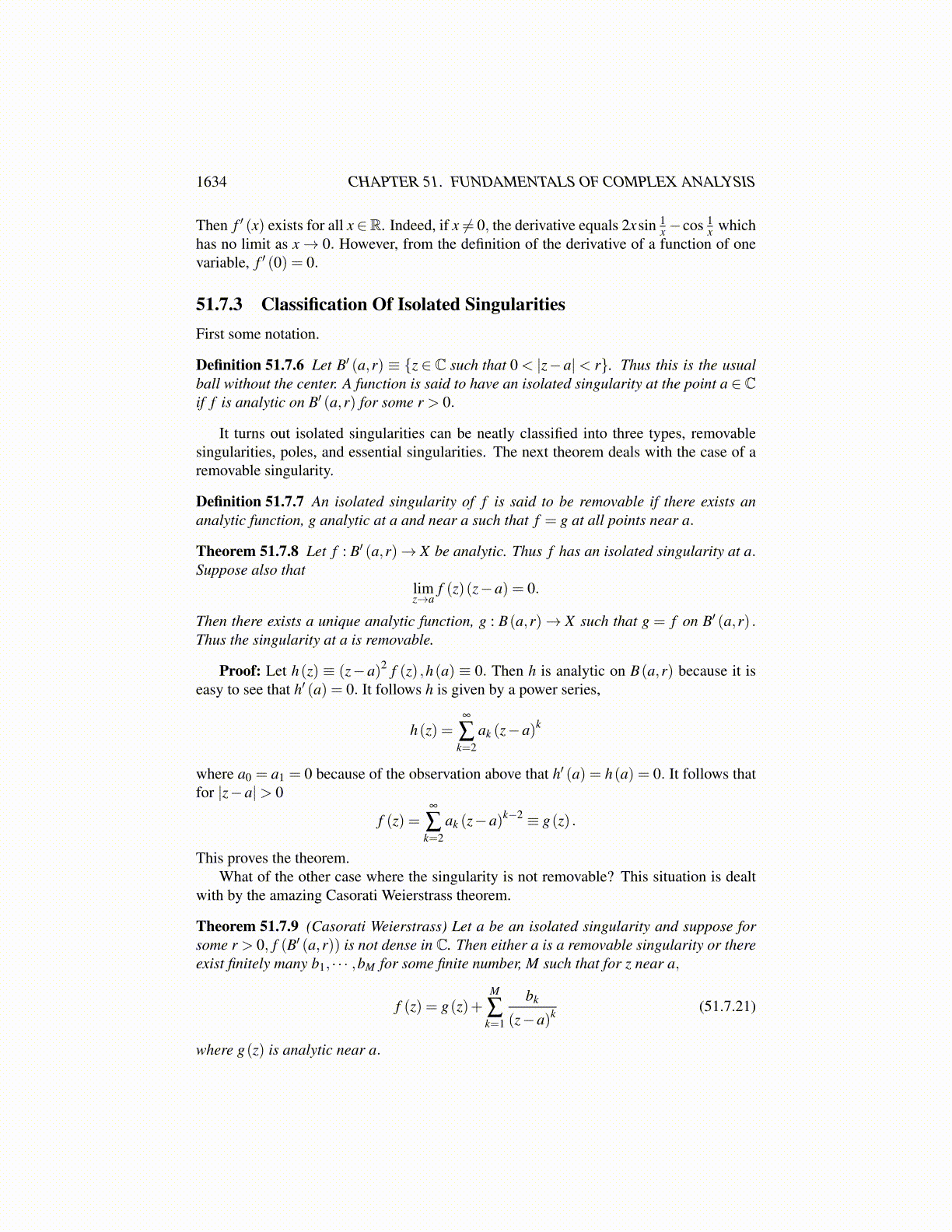
1634 CHAPTER 51. FUNDAMENTALS OF COMPLEX ANALYSIS
Then let z ∈ ∩∞k=1Tk and note that by assumption, f ′ (z) exists. Therefore, for all k large
enough, ∫∂Tk
f (w)dw =∫
∂Tk
f (z)+ f ′ (z)(w− z)+g(w)dw
where ||g(w)|| < ε |w− z| . Now observe that w→ f (z) + f ′ (z)(w− z) has a primitive,namely,
F (w) = f (z)w+ f ′ (z)(w− z)2 /2.
Therefore, by Corollary 50.0.14.∫∂Tk
f (w)dw =∫
∂Tk
g(w)dw.
From the definition, of the integral,
α
4k ≤∣∣∣∣∣∣∣∣∫
∂Tk
g(w)dw∣∣∣∣∣∣∣∣≤ ε diam(Tk)(length of ∂Tk)
≤ ε2−k (length of T )diam(T )2−k,
and soα ≤ ε (length of T )diam(T ) .
Since ε is arbitrary, this shows α = 0, a contradiction. Thus∫
∂T f (w)dw = 0 as claimed.This fundamental result yields the following important theorem.
Theorem 51.7.2 (Morera1) Let Ω be an open set and let f ′ (z) exist for all z ∈ Ω. LetD≡ B(z0,r)⊆Ω. Then there exists ε > 0 such that f has a primitive on B(z0,r+ ε).
Proof: Choose ε > 0 small enough that B(z0,r+ ε) ⊆ Ω. Then for w ∈ B(z0,r+ ε) ,define
F (w)≡∫
γ(z0,w)f (u)du.
Then by the Cauchy Goursat theorem, and w ∈ B(z0,r+ ε) , it follows that for |h| smallenough,
F (w+h)−F (w)h
=1h
∫γ(w,w+h)
f (u)du
=1h
∫ 1
0f (w+ th)hdt =
∫ 1
0f (w+ th)dt
which converges to f (w) due to the continuity of f at w. This proves the theorem.The following is a slight generalization of the above theorem which is also referred to
as Morera’s theorem.
1Giancinto Morera 1856-1909. This theorem or one like it dates from around 1886